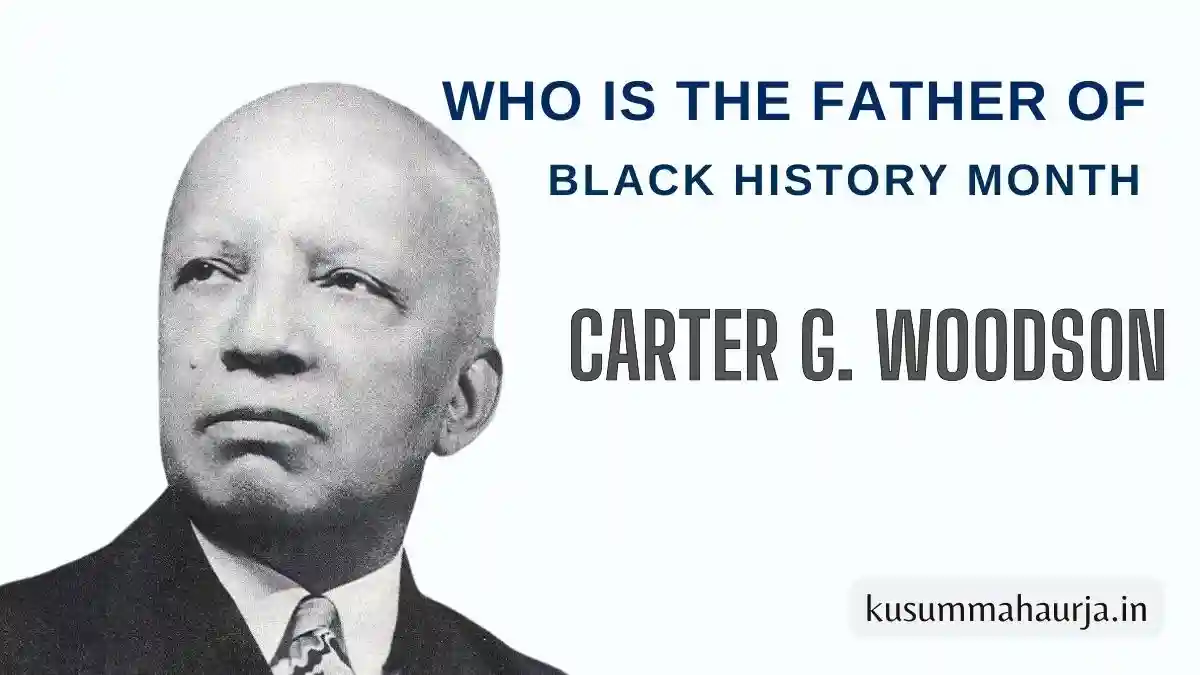Carter G. Woodson, a historian & scholar, is considered the “The Father of Black History Month” for his work establishing Negro History Week, the precursor to Black History Month.
When it comes to recognizing and celebrating the contributions of African Americans to American history, one name stands out: Carter G. Woodson. Often referred to as the “Father of Black History Month,” Woodson was a historian, educator, and author who dedicated his life to promoting the study and understanding of African American history.
The Life and Legacy of Carter G. Woodson
Carter G. Woodson was born on December 19, 1875, in New Canton, Virginia. Growing up in a time of racial segregation and limited educational opportunities for African Americans, Woodson faced many challenges. However, his thirst for knowledge and determination led him to become one of the most influential figures in African American history.
Woodson earned his bachelor’s degree from Berea College in Kentucky and went on to obtain a master’s degree in history from the University of Chicago. In 1912, he became the second African American to earn a Ph.D. from Harvard University, specializing in history.
Driven by his passion for education and the belief that the history of African Americans was an essential part of American history, Woodson dedicated his life to researching, documenting, and promoting the achievements and contributions of African Americans.
The Creation of Black History Month
In 1926, Carter G. Woodson established Negro History Week, which later evolved into Black History Month. He chose the second week of February to coincide with the birthdays of two influential figures in African American history: Abraham Lincoln and Frederick Douglass. The goal was to highlight the significant contributions African Americans had made to the nation’s history and to foster a greater understanding and appreciation for their achievements.
Woodson believed that by studying and acknowledging the accomplishments of African Americans, both past and present, society could combat racism and promote equality. He saw the importance of education and the power of knowledge in challenging the prevailing narratives of racial inferiority.
Impact and Significance
Black History Month quickly gained recognition and support, becoming a time for schools, organizations, and communities to celebrate and honor the achievements of African Americans. It provided an opportunity to shed light on the often overlooked contributions of African Americans in various fields, including science, literature, art, politics, and social activism.
Woodson’s efforts extended beyond the establishment of Black History Month. In 1915, he founded the Association for the Study of Negro Life and History (now known as the Association for the Study of African American Life and History) to promote the scholarly study of African American history and culture. He also authored numerous books, including his seminal work, “The Mis-Education of the Negro,” which challenged the prevailing educational system’s treatment of African American students.
Woodson’s legacy continues to inspire and educate people around the world. His vision of recognizing and celebrating the history and achievements of African Americans has had a profound impact on how we understand and teach American history.
Conclusion
Carter G. Woodson’s dedication to African American history and his establishment of Black History Month have left an indelible mark on American society. His work has helped to elevate the contributions of African Americans and promote a more inclusive understanding of American history. As we celebrate Black History Month each year, let us remember and honor the man who paved the way for this important observance: the father of Black History Month, Carter G. Woodson.
